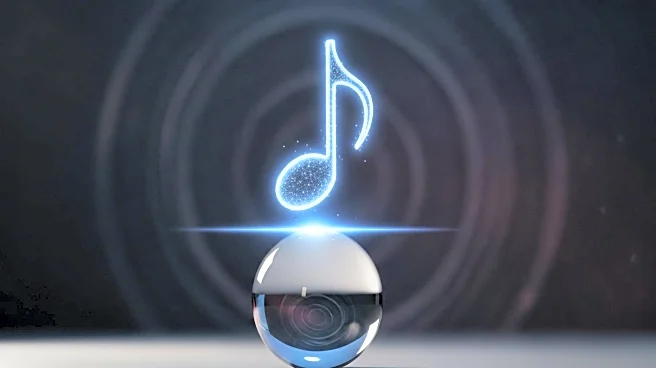What's Happening?
The Netflix film 'KPop Demon Hunters' has achieved significant success on the Billboard charts, topping both the Top 100 and 200 lists. However, the film's soundtrack is under scrutiny due to allegations that a songwriter used AI assistance, specifically a tool similar to ChatGPT, to help write the song 'Soda Pop.' The controversy arose from a now-deleted tweet by an OpenAI executive, which suggested that the songwriter Vince used AI to make the song sound 'more bubbly.' Despite these claims, the film continues to break records, and its characters have previously faced allegations of being AI-generated. The film's producers and Netflix have yet to comment on the situation.
Why It's Important?
The allegations of AI involvement in songwriting for 'KPop Demon Hunters' highlight the growing intersection of technology and creative industries. If true, this could set a precedent for the use of AI in music production, potentially affecting how music is created and perceived. The controversy also raises questions about authenticity and originality in the entertainment industry, which could impact consumer trust and the reputation of artists involved. As AI technology becomes more prevalent, industries may need to establish guidelines and ethical standards for its use in creative processes.
What's Next?
The ongoing success of 'KPop Demon Hunters' on the Billboard charts suggests that the controversy may not significantly impact its popularity. However, the entertainment industry and audiences may closely watch for any official statements from Netflix or the film's producers. The situation could prompt discussions about the role of AI in creative fields and lead to potential policy changes or industry standards regarding AI use in music and film production.
Beyond the Headlines
The use of AI in creative processes poses ethical questions about the nature of creativity and the value of human input. As AI tools become more sophisticated, the line between human and machine-generated content may blur, challenging traditional notions of authorship and intellectual property. This development could lead to broader cultural shifts in how society values and consumes art and entertainment.










